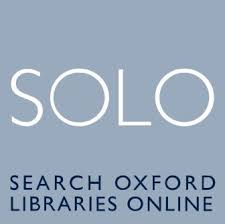The essence of technical consciousness within the frame of the semiotic approach
- Authors: Nesterov A.Y.1
-
Affiliations:
- Samara State Aerospace University
- Issue: Vol 14, No 1 (2015)
- Pages: 235-246
- Section: ECONOMICS AND HUMANITIES
- URL: https://journals.ssau.ru/vestnik/article/view/2610
- DOI: https://doi.org/10.18287/1998-6629-2015-14-1-235-246
- ID: 2610
Cite item
Full Text
Abstract
The author considers the matter of technology essence within the frame of the semiotic approach. By a technology is meant a projective way of the work of consciousness with signs which consists in the reversion of reception and leads to the creation of new “meanings” while realizing semantic, syntactic and pragmatic rules at each level of cognition, whether it is sense perception, understanding (Verstand) or reason (Vernunft). Technical consciousness is considered within three levels. On the first level it is treated as “tradition” and technology is defined as unconscious activity complying with certain rules and providing survival in the natural environment. On the second level it is treated as “the second nature” and technology is defined as the process of creation of something new, which is possible in case of control over matter. It replaces the natural environment with an artificial one. On the third level it is treated as “the third nature” and technology is a means of control over reflection. Technical consciousness described as projective semiosis shows the evolution of an individual from tradition to neomankind. Having been born, a human masters the skills transmitted by cultural memory, which provides survival in natural habitat. Fantasy, fiction and metaphysical conception generated by astonishment, aesthetic experience or a practical problem provoke processes of self-comprehension and make it possible (indirectly) to see the reflexive character of practical activity. The ability to embody fictional objects in material substrates generates the second nature which replaces natural objects of perception and presentation. The ability to modify rules of reflection leads to deliberate and controlled self-evolution of a human being by means of creation of “the third nature”, where a human being becomes a neohuman being who is capable of changing the quality of one’s existence as a reflexive creature.
About the authors
A. Yu. Nesterov
Samara State Aerospace University
Author for correspondence.
Email: phil@ssau.ru
Doctor of Philosophy
Head of the Department of Philosophy and History
Russian FederationReferences
- Aristotle. Metafizika. Sochinenija v 4 tomah. Tom 1 [Metaphysics]. Moscow: Mysl' Publ., 1975. 550 p.
- Cassirer E. Form and technique. Symbol, technology, language. Hamburg: Meiner Publ., 1985. P. 39-91.
- Rapp F. The Philosophy of Technology: A Review. In: Interdisciplinary Science Reviews. Moscow: Progress Publ., 1989. P. 24-53. (In Russ.)
- Beck H. The essence of technology. Cultural philosophy of technology. Moscow: Progress Publ., 1989 P. 172-190. (In Russ.)
- Engelmeier P.K. Filosofija techniki [Philosophy of Technology]. Sankt-Petersburg: Lan' Publ., 2013. 96 p.
- Ropohl G. Technology as a counter Nature. Nature as a counter-world. Karlsruhe. Moscow: Progress Publ., 1989. P. 203-221. (In Russ.)
- Popper K.R. Objective Knowledge: An Evolutionary Approach. Oxford: Clarendon Press, 1972. 380 p.
- Nesterov A.Y. Semioticheskaja shema poznanija i kommunikacii [Semiotic scheme of cognition and communication]. Samara: Samara Academy of Humanities Publ., 2008. 193 p.
- Kant I. Kritik der reinen Vernunft [Critique of Pure Reason] / Wekausgabe in 12 Baenden. Bd. III. F.a.M., 1956. 340 P.
- Dubrovskij D.I. Psihicheskie javlenija i mozg [Psychic phenomena and brain]. Moscow: Kanon+ Publ., 1971. 368 p.
- Dubrovskij D.I. Soznanie, mozg, iskusstvennij intellect [Consciousness, brain, artificial intelligence]. Moscow: ID Strategiya-Tsentr Publ., 2007. 272 p.
- Goodman N. Ways of Worldmaking. Hassocks, Sussex, 1978. 142 p.
- Lebedev M.V. Znachenie, istina, obosnovanie [Meaning, truth, justification]. Moscow: Knizhnyydom «LIBROKOM» Publ., 2011. 368 p.
- Frazer G.G. Zolotaya vetv' [The golden Bough]. Moscow: AST Publ., 1923. 784 p.
- Platon. Republic. Gosudarstvo. Sobranie sochineniy v 4-kh tomaкh. T. 3. Moscow: Mysl' Publ., 1994. P. 79-420. (In Russ.)
- Hegel G.W.F. Enzyklopädie der philosophischen Wissenschaftenim Grundrisse [Encyclopedia of Philosophical Sciences in Outline]. Hamburg: Meiner, 1991. 515 p.
- Wittgenstein L. Tractatus logico-philosophicus. Werkausgabe in 8 Bänden. Bd.1. F.a.M.: Suhrkamp, 1999. P. 7-85.
Supplementary files




















